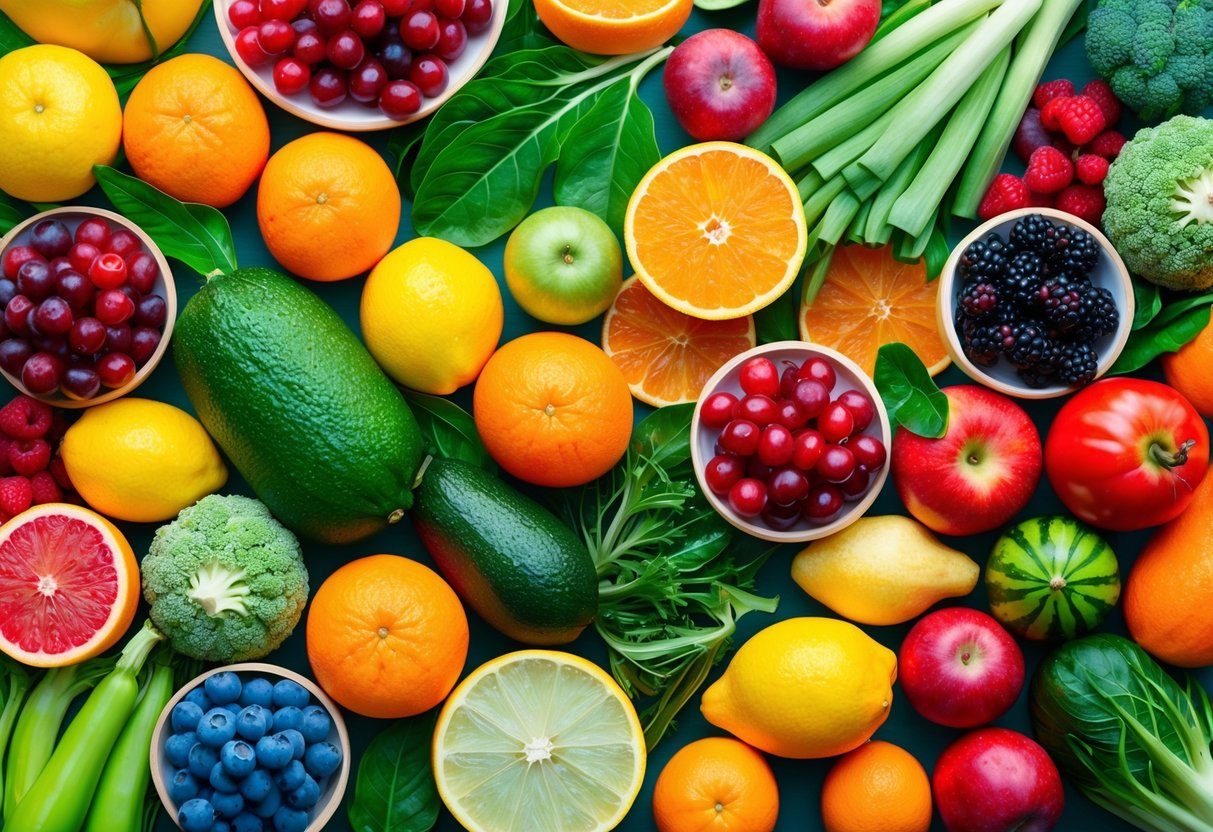
Antioxidant-rich foods play a key role in supporting the immune system and protecting the body from everyday oxidative stress. These nutrients are found in a range of whole foods, including dark leafy greens, vibrant berries, nuts, and certain types of vegetables.
Incorporating antioxidant-rich ingredients into daily meals can help reduce inflammation and provide the nutrients that are necessary for optimal health.
Beyond promoting immunity, antioxidants are also associated with better overall well-being and may contribute to a healthier lifestyle by fighting free radicals. Foods like blueberries, kale, almonds, raspberries, and artichokes consistently rank among the best choices for natural antioxidant content.
When considering which foods offer the most benefits, options such as dark chocolate, pecans, and goji berries have become increasingly popular for their high antioxidant value. For a deeper look at the best options to add to daily eating habits, a wide range of antioxidant-rich foods can easily fit into any diet.
What Are Antioxidants and Why Are They Important?
Antioxidants are natural compounds that protect the body’s cells against damage from unstable molecules called free radicals. Proper nutrition including antioxidant-rich foods helps maintain immune system resilience and supports overall health.
How Antioxidants Support the Immune System
Antioxidants work by neutralizing free radicals, which are unstable molecules that can damage cells and contribute to inflammation and disease. When free radicals accumulate, they can cause oxidative stress, weakening the immune system’s ability to defend the body.
A strong immune system depends on adequate levels of vitamins and minerals with proven antioxidant activity, such as vitamin C, vitamin E, and selenium. These nutrients enable immune cells to function efficiently and repair themselves after fighting infections.
Eating a variety of antioxidant-rich fruits and vegetables can help reduce the risk of infection and chronic illnesses. Research highlights that incorporating foods high in antioxidants, like berries, leafy greens, and nuts, strengthens natural defenses against cellular stress and illness.
For more on these effects, Healthline offers a comprehensive overview.
Key Types of Antioxidants in Foods
Fruits, vegetables, and some grains are the main sources of dietary antioxidants. The most recognized types include:
- Vitamin C: Found in citrus fruits, bell peppers, and strawberries. It helps protect immune function and assists in tissue repair.
- Vitamin E: Present in nuts, seeds, and spinach. It safeguards cell membranes from oxidative damage.
- Beta-carotene: Gives carrots and sweet potatoes their orange hue and helps maintain healthy skin and vision.
- Selenium: A mineral found in Brazil nuts, fish, and eggs. It boosts antioxidant enzyme activity.
- Polyphenols: Abundant in berries, dark chocolate, and tea, these compounds have a strong capacity for neutralizing free radicals.
A diet rich in these nutrients provides essential support for immune health and protects cells from daily environmental stressors.
For a deeper dive into specific antioxidant-rich food options, check out this detailed list by St. John’s Health.
Top Antioxidant-Rich Fruits to Add to Your Diet
Antioxidant-rich fruits supply the body with vital nutrients such as vitamin C, flavonoids, and anthocyanins. These key ingredients support the immune system, promote cellular health, and help defend against harmful oxidative stress.
Berries: Blueberries, Strawberries, and More
Berries are renowned for their potent antioxidant content. Blueberries, in particular, are rich in anthocyanins, which are compounds linked to improved immune defenses and reduced inflammation.
Strawberries provide an excellent source of vitamin C, along with fiber and other polyphenols that further promote health. Other berries like raspberries, blackberries, and cranberries offer unique mixes of flavonoids and vitamins.
Incorporating a variety of berries into the diet supports heart health, brain function, and immune resilience. For a quick comparison:
| Berry | Key Antioxidant | Notable Nutrients |
|---|---|---|
| Blueberries | Anthocyanins | Fiber, vitamin C |
| Strawberries | Flavonoids | Vitamin C, fiber |
| Raspberries | Ellagic acid | Vitamin C, fiber |
See a detailed list of high-antioxidant berries at St. John’s Health and more antioxidant-rich berries.
Citrus Fruits: Oranges, Kiwi, Lemon
Citrus fruits stand out for their high vitamin C levels and bioactive compounds. Oranges deliver robust amounts of vitamin C and a mix of flavonoids that can support normal immune function.
Kiwi fruit provides even more vitamin C per serving, along with vitamin K, fiber, and natural antioxidants. Lemon is used both for its refreshing flavor and its immune-boosting ascorbic acid content.
The different flavonoids and fibers found in citrus fruits help protect the body’s cells from oxidative damage. Eating a mix of these fruits daily may help strengthen the immune response and promote overall well-being.
For more about beneficial fruits such as oranges and kiwi, visit EatingWell’s guide.
Cruciferous Fruits for Immunity
Some lesser-known fruits in the cruciferous family provide antioxidant power and additional health benefits. Papaya, while not a traditional crucifer, contains glucosinolates similar to those found in cruciferous vegetables—compounds thought to provide immune support.
These fruits are also valuable for their rich supply of vitamin C, folate, and dietary fiber. Consuming cruciferous fruits helps support the body’s natural defenses and may reduce the impact of environmental stressors.
Including a variety of antioxidant-rich fruits, including cruciferous options, supports a nutrient-dense, balanced diet beneficial for immune health and vitality.



